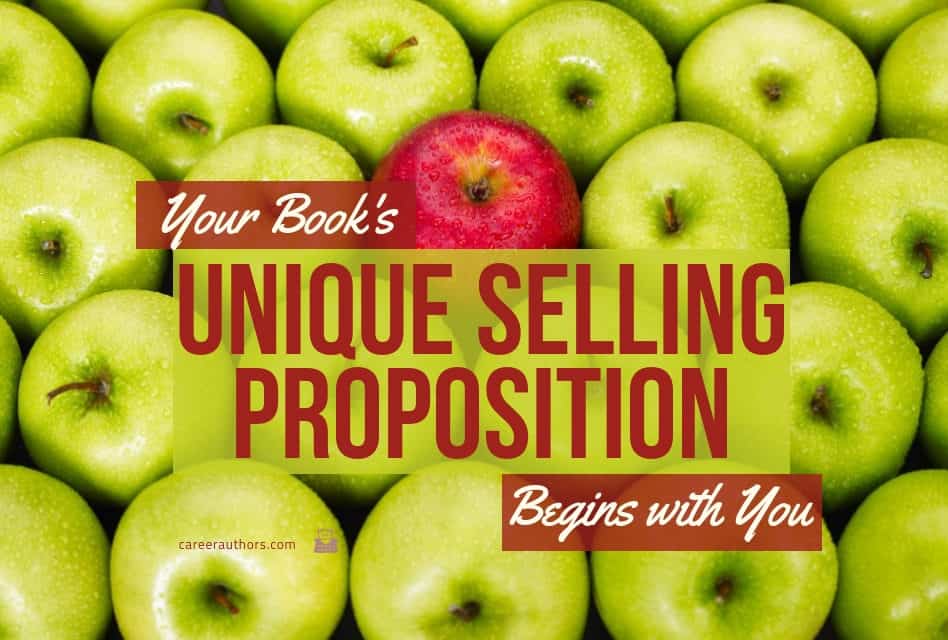Writers often ask me what I mean when I say that what your story needs is a strong USP. That is, Unique Selling Proposition. USP is a marketing term that describes what differentiates your product from its competition in the marketplace.
Stories are products, too, and they are sold in a retail marketplace. That’s why they, too, need a strong USP. This means that you need to be able to differentiate your book from all the category killers that are in fact your worst competition, along with all the other successful books in your genre.
The bad news is: You need a strong USP to break out in today’s tough publishing landscape.
The good news is: You may not have to look any farther than yourself to find it.
When you’re looking for a USP for your work, you should start with that holy trinity you know best: me, myself, and I.
Getting to know you and your USP
I was reminded of this recently in a very personal way. I was at a book signing for the lovely Hank Phillippi Ryan, celebrating the launch of her first fabulous stand-alone thriller, Trust Me. While I was standing in line to get my copy of Trust Me signed, a woman came up to me.
“I wanted to meet you,” she said with a big smile. “I just read your book Writing with Quiet Hands. I loved it. I learned so much from it. It’s great to meet you in person. But I feel like I already know you so well having read your book.”
This was one of those wonderful encounters that we authors are lucky enough to experience from time to time. And while it wasn’t the first time, it was one of the best. Because the greatest compliment a reader can offer you after “I loved your book” is “I feel like I know you having read it.”
This is true whether you’re writing fiction or nonfiction. Whether you’re writing about boy-meets-girl on the beach or high-intrigue on a colony on the moon. And it’s even true as in the case of Writing with Quiet Hands, which is a how-to book about writing.
I know this is true because one of my hero authors, Natalie Goldberg, says so. Goldberg is a longtime Zen practitioner and the author of one of my favorite books on writing: Writing Down the Bones. (It’s a classic, if you haven’t read it, you should.)
I read an interview with her where she said that after she finished the book—one of the first books to apply the principles of Zen to writing—she gave the book to a friend to read. And even though it was a book about writing, her friend told her (I’m paraphrasing here): “People are going to love this book. This book is going do really well because having read it, I feel like I got to know you a little better and that’s what people really want when they read a book. To feel that they’ve gotten to know the author.”
Goldberg was surprised by that. But when you get right down to it, that’s what makes her book about writing unique. It’s about how her Zen practice informed her writing and how the principles of Zen could be applied to anyone writing anything.
Her USP was herself as a Zen practitioner.
That’s what made her writing practice special and ultimately her writing special.
So when this woman came up to me to tell me she loved Writing with Quiet Hands and that she thought she knew me having read it, I was not alarmed, but rather I was pleased and even moved.
Name your USP
Ultimately, what makes your work special is you. Ask yourself, “what about me informs this work?” Sometimes it’s very obvious: You’re a cop and you’ve written a police procedural. The reason cops often make such great crime writers is because they write with the voice of authority. They’ve been there, they’ve done that, they know how the movie ends. There’s a ring of authenticity to their work that you don’t often find among their civilian competition.
Granted, that’s a very obvious connection. Easy to see how a police officer’s experience and background and knowledge can inform the writing of a police procedural. It may not be so obvious in your work, especially if you’re writing something set in another time or on another planet.
But there are things about you that you bring to your work: Your voice, your sensibilities, your values.
You can’t read Ray Bradbury without appreciating his zest for life. You can’t read Carl Hiaasen without appreciating his offbeat sense of humor. You can’t read Alice Hoffman without appreciating the mystical and magical and mysterious aspects of life. These qualities inform these authors’ work and make their work special.
Every writer has a USP. Once you find yours, you need to milk it. You need to acknowledge it and enhance the way it informs your work. And then when it’s time to shop it, you’ll have the USP you need to sell it.
Question or comments about your own USP? Let’s chat on Facebook.





